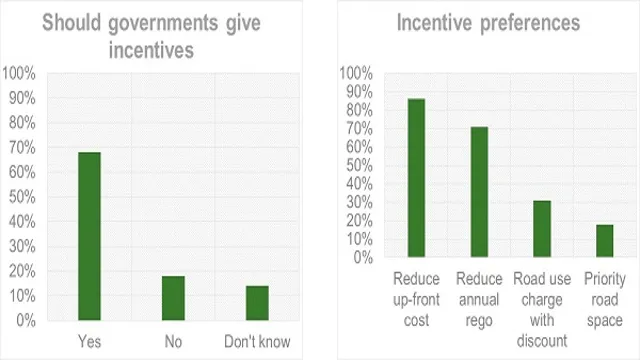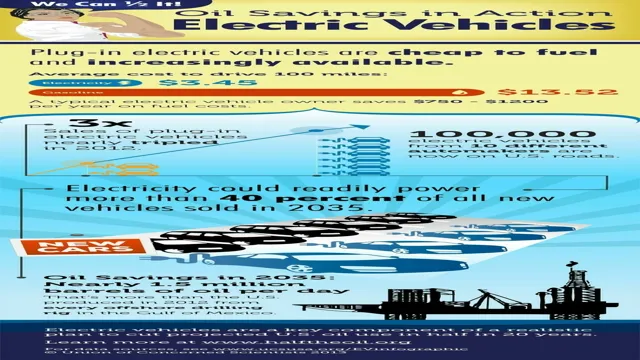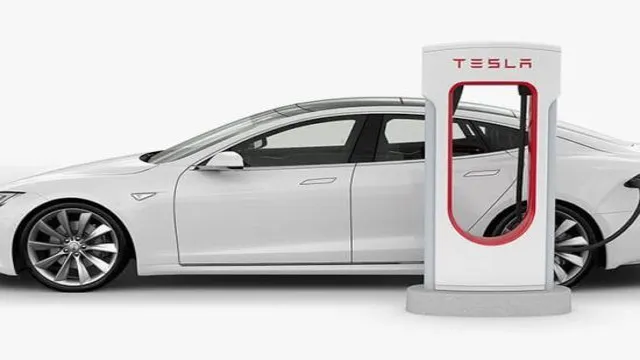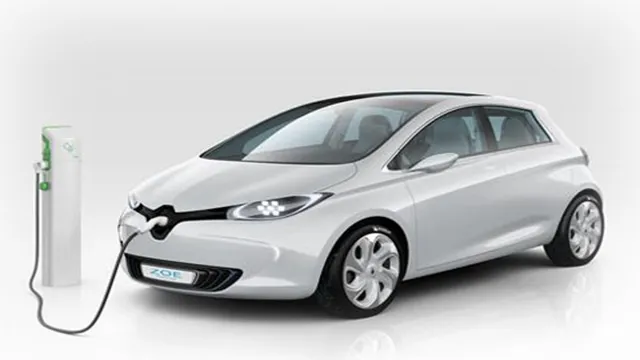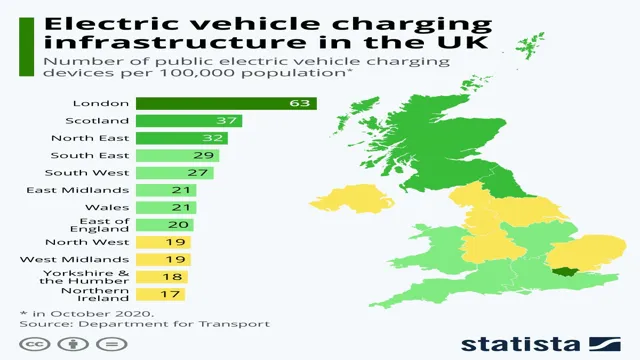Revving Up the Future: Exploring the Latest Government Policies and Incentives for Electric Cars
Electric cars are becoming increasingly popular due to their eco-friendly nature and cost-effectiveness. Moreover, the government also offers incentives to encourage individuals to switch to electric cars. If you’re in the market for a new vehicle, then this article is for you.
We will overview different electric car incentive programs available in the market to help you make a well-informed decision. Whether you’re looking for rebates, tax credits, or other incentives, this guide will provide all the essential information to help you save money while making an eco-friendly choice. So let’s dive in and explore the exciting world of electric cars!
Types of Government Incentives
When it comes to electric car government policies and incentives, there are various types that can help consumers make the switch to an eco-friendly alternative. One type of incentive is financial, such as tax credits and rebates, which can reduce the overall cost of purchasing an electric vehicle. Another type is regulation, where governments may mandate certain targets for automakers to produce a specific percentage of zero-emission vehicles.
Additionally, some governments provide infrastructure incentives, such as funding for the installation of public charging stations. These measures can improve convenience and accessibility for those who rely on their electric vehicle for daily use. Overall, these types of incentives are crucial for promoting sustainable transportation options and working towards a more environmentally friendly future.
Tax Credits and Rebates
Tax Credits and Rebates When it comes to government incentives, tax credits and rebates are two of the most common types offered. Tax credits are designed to reduce the amount of tax owed by individuals or businesses, and are typically given as a percentage of the amount spent on a qualifying purchase or activity. Rebates, on the other hand, are cash payments or refunds given to individuals or businesses that have already paid for a qualifying purchase or service.
This can include things like energy-efficient appliances or home improvements, renewable energy systems, and even electric vehicles. The purpose of these incentives is to encourage the adoption of environmentally-friendly practices and technologies, as well as to help offset the cost of making these investments. By taking advantage of tax credits and rebates, individuals and businesses can not only save money, but also play an active role in building a more sustainable future.
Grants and Subsidies
Grants and subsidies are a great way for individuals and businesses to receive financial assistance from the government. There are several types of incentives that the government offers, including tax credits, reduced interest rates, and direct grants. Tax credits are a popular incentive offered to businesses that encourage them to make investments or perform research and development activities.
This type of incentive can help reduce businesses’ tax liabilities and stimulate economic growth. Reduced interest rates, on the other hand, are more commonly offered to individuals who need to finance certain expenses, such as a mortgage or student loan. Finally, direct grants are cash payments made by the government to businesses or individuals for certain qualifying expenses, such as expanding operations or creating new jobs.
These incentives can be extremely helpful for those who are looking to improve their financial situation but may not have the resources to do so on their own.
Global Incentives for Electric Cars
Electric car government policies and incentives are being implemented globally as countries strive towards reducing carbon emissions and adopting sustainable transportation systems. Governments worldwide are offering a range of incentives to encourage the adoption of electric cars, including tax credits, rebates, and purchase subsidies. In the United States, states like California are offering up to $7,000 in incentives to purchase electric cars, while some European countries like Norway provide exemptions from tolls and reduced parking rates for electric vehicles.
Additionally, some governments are promoting the installation of charging infrastructure through various schemes and programs. By adopting these policies, governments aim to accelerate the shift towards cleaner, more sustainable transportation options, while reducing the harmful impact of fossil fuel-driven vehicles on our environment. These incentives make electric cars more affordable, and as more people switch to electric vehicles, we can look forward to a healthier planet, cleaner air quality, and reduced greenhouse gas emissions.
Norway’s Ambitious Plan
Norway’s ambitious plan to incentivize the use of electric cars is a bold step towards a more sustainable future. By offering tax breaks, toll exemptions, and free charging stations, the Norwegian government is actively encouraging its citizens to switch to electric vehicles. In fact, Norway now has the highest per capita ownership of electric cars in the world.
The government has set a goal of making all new cars sold in Norway electric by 2025, and the incentives seem to be working. Electric cars are becoming more affordable, and charging infrastructure is rapidly expanding. With rising concerns about climate change, it’s important that countries take action to reduce their carbon footprint.
Norway’s approach is a great example of how government policies can drive change towards a greener future.
China’s Aggressive Push
China has been making an aggressive push towards the use of electric cars, with incentives being offered to both manufacturers and consumers. The country has set ambitious targets for the adoption of electric vehicles, with a goal of having 25% of all new car sales be electric by 202 In addition to subsidies for electric car purchases, the Chinese government has also implemented stricter regulations on traditional gasoline-powered vehicles in major cities, such as Beijing and Shanghai.
This has led to a surge in demand for electric cars, with manufacturers such as Tesla and Volkswagen ramping up production to meet the growing need. As other countries look to reduce their carbon footprint, China’s push towards electric vehicles serves as a model for the rest of the world.
Europe’s Green Deal
Electric Cars As part of Europe’s Green Deal, there has been an increase in global incentives for electric cars. Governments around the world are offering rebates, tax credits, and other benefits to encourage consumers to switch to electric vehicles. In addition to being environmentally friendly, these cars are becoming more affordable and their technology is becoming more advanced.
With electric cars, drivers pay less at the pump and contribute less to air pollution. It’s no wonder why these vehicles are gaining in popularity. In the United States, for example, some electric car models qualify for up to $7,500 in federal tax credits, while in the United Kingdom, buyers can receive up to £2,500 in grants.
These incentives make it easier for consumers to make the switch to electric and contribute to the global movement towards sustainable transportation. It is important to note that incentives for electric cars differ depending on where you live and what type of car you buy, so it’s worth doing your research before making a purchase. But with so many benefits, it’s clear that electric cars are the way of the future.
Factors Affecting Electric Car Incentives
The availability and types of government policies and incentives for electric cars vary greatly between countries and regions, and can have a significant impact on their adoption rates. For instance, some countries offer tax incentives, rebates, or subsidies for buying electric vehicles, while others provide benefits like free parking or access to bus lanes. Governments can also set regulations regarding emissions and fuel efficiency standards for vehicles, which can incentivize manufacturers to produce more electric and hybrid vehicles.
Additionally, the development of charging infrastructure networks can be encouraged through government grants and support. Overall, a comprehensive set of government policies and incentives is crucial for fostering the growth and adoption of electric vehicles, ultimately reducing emissions and contributing to a more sustainable future.
Political Climate and Regulatory Environment
The political climate and regulatory environment have a significant impact on electric car incentives. Governments across the world are trying to reduce their carbon footprint, and electric cars can play a significant role in this endeavor. Governments often provide incentives in the form of tax credits or rebates to encourage people to buy electric cars.
However, the amount and nature of these incentives depend on the regulatory environment in the country. For example, countries with strict emission standards tend to provide more incentives than countries without such regulations. The political climate also plays a role in providing incentives.
Governments that prioritize environmental protection are more likely to provide incentives for electric cars than governments that don’t. Additionally, changes in political leadership can lead to changes in incentives. Overall, the impact of political climate and regulatory environment on electric car incentives is significant.
Understanding these factors can help individuals and businesses make informed decisions about their next vehicle purchase.
Economic Benefits
One of the main factors affecting electric car incentives is the overall cost and affordability of these vehicles. In order to encourage more people to switch to electric cars, governments and other organizations may offer incentives such as rebates, tax credits, or special parking or toll fee discounts. However, if the cost of the electric car is too high, these incentives may not be enough to convince most drivers to make the switch.
Additionally, the availability of charging infrastructure is also a major factor. Drivers need to know that they can easily and reliably recharge their cars, especially during long trips. Without enough charging stations, electric cars may not be practical for many drivers.
Overall, the effectiveness of electric car incentives depends on a variety of economic and practical factors, and any incentive scheme must take these factors into account to be successful in encouraging more people to switch to electric cars.
Conclusion
In conclusion, government policies and incentives have played a crucial role in the emergence and growth of the electric car market. By providing financial support and favorable regulations, policymakers have spurred innovation and increased consumer adoption of electric vehicles. On top of that, these policies also represent a commitment to sustainability and a greener future.
While there is still much work to be done, it is clear that electric cars are here to stay – and we have government policies to thank for that spark of hope.”
FAQs
What are some government policies supporting electric cars?
Some government policies supporting electric cars include tax credits, grants, and subsidies for purchasing and installing electric vehicle charging stations.
Are there any incentives for businesses to switch to electric cars?
Yes, businesses can receive tax credits and grants for purchasing electric vehicles or installing charging stations. Additionally, some municipalities offer reduced parking rates or reserved parking spots for electric vehicles.
Are there any penalties for not meeting government regulations on electric cars?
Yes, some countries or states may impose penalties for not meeting government regulations on electric cars. For example, in California, automakers must produce a certain number of electric or low-emission vehicles or pay a penalty.
What are some companies that offer incentives for purchasing electric cars?
Some automakers, such as Tesla, Nissan, and Chevrolet, offer incentives for purchasing electric cars, such as tax credits or reduced pricing. Additionally, some charging companies, such as ChargePoint, offer discounted rates for electric vehicle owners.

